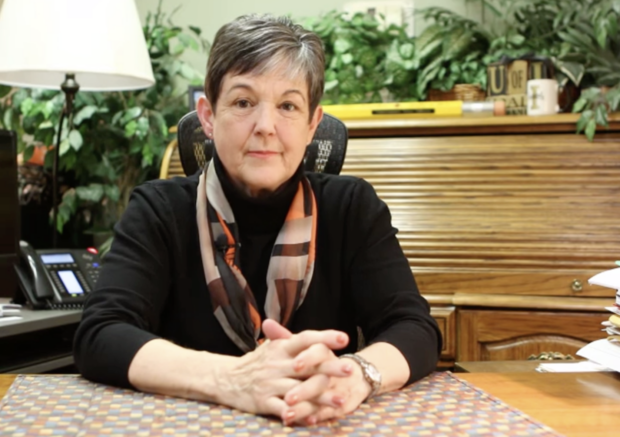2020-21 was a long year for Idaho school districts. The pandemic wrought havoc on everyone, including students, parents, teachers, administrators, and school boards. Masks and school closures sparked controversy among those in favor and those against, and educators felt the brunt of “never making the right decision”. But they persevered, and the last few months of the school year appeared to bring light at the end of the tunnel.

What should have been a time of healing and preparation for next school year was not to be. As part of a national campaign to discredit public education, the Idaho Freedom Foundation and its state-level partners launched an all-out attack on educators, who have, in the words of the IFF leader, been responsible for the “left’s unchecked radicalization of young people that has been unfolding for years in the government indoctrination camps we call public schools.” Their objective was and is to divide communities and sow dissent.
Unchecked radicalization? Government indoctrination camps? What evidence is there to support these statements?
As former Chief Justice of the Idaho Supreme Court Jim Jones wrote in an op-ed a few weeks ago, the IFF and its leader want to end public schools. IFF has been open about it, noting that K‑12 education is “the most virulent form of socialism (and indoctrination thereto) in America today”. But let’s be clear here: their campaign against “indoctrination” is really about spreading disinformation and breeding distrust, and in making people believe that public schools have no valuable function in society.
However, the necessity of public schools is in “preserving the stability of a republican form of government depending mainly on the intelligence of the people”… as specified in the Idaho Constitution, Article IX, Section 1.

So with the advent of the push to abolish “indoctrination” in Idaho public schools, Idaho’s Legislature passed a law which outlawed the teaching of concepts that are supposedly part of Critical Race Theory (CRT), without providing a definition for it. Most teachers had never heard the term Critical Race Theory until they read it was banned. The primary accomplishments of the bill were to create distrust, scare teachers, and to make them think twice about teaching critical thinking. It was and is a woefully misguided solution in search of a problem.
But the IFF leader would have you believe that: “Our schools have downplayed the importance of liberty and a free society. Students hear next to nothing about the roles capitalism and private property have played in American prosperity. But they’ve read and heard plenty of positive portrayals of socialism, Marxism, and communism.”
Downplayed…liberty and a free society? Positive portrayals of socialism, Marxism, and communism? Nothing about …capitalism and private property? These are the musings of people who have never darkened the door of an Idaho public school classroom. If they had, they would see what the people of Idaho already know: that our teachers,

school board members, administrators and support personnel are patriotic, good hearted citizens who teach and serve out of love for the students of their communities.
Here are a few of the actual student goals in Idaho’s U.S. Government standards:
- Describe historical milestones that led to the creation of limited government in the United States, such as the Declaration of Independence (1776), Articles of Confederation (1781), state constitutions and charters, United States Constitution (1787), and the Bill of Rights (1791).
- Analyze important events and individuals responsible for bringing about political changes in the United States.
- Compare and contrast different economic systems and relate each to different forms of government.
- Describe the origins of constitutional law in western civilization, including the natural rights philosophy, Magna Carta (1215), common

Geoffrey Thomas law, and the Bill of Rights (1689) in England.
- Analyze the essential philosophies, ideals, and objectives of the foundational documents of the United States, including the Declaration of Independence, the Articles of Confederation, the United States Constitution, the Bill of Rights, and Federalist Papers.
- Explain the central principles of the United States governmental system including a written constitution, rule of law, popular sovereignty, limited government, separation of powers, checks and balances, majority rule with minority rights, judicial review, and federalism.
These and other standards in Government and U.S. History provide a framework for essential student understanding of these important topics. They don’t include advocacy of any political systems, and teachers are certainly not required to downplay other systems.
This kind of rhetoric from the Idaho Freedom Foundation is inflammatory and dangerous, and as a result we now have an “Indoctrination Commission” led by two candidates for political office devoted to “rooting out” the supposed activities described by the IFF leader, even though the written standards established for our kids are clearly stated.
All of this is rhetorical overreach. Idaho legislators often use “local control” as a moniker when it is convenient, but the Indoctrination Commission is certainly a big government committee. Idaho parents have never been shy about expressing their displeasure with curricula to their locally elected school board. Issues are taken care of at the local level by locally elected officials, and that’s how it should be.
Furthermore, Idaho already has a Professional Standards Commission and a Code of Ethics for Teachers. Parents and patrons can and do file complaints with the PSC about violations of any of the Code.
Idaho’s business leaders understand that a well-educated workforce is crucial to the state’s future success, and many of their vision and mission statements reflect a commitment to tolerance, equity, and diversity, which are among the IFF’s targets in schools.
So instead of condemning educators and school board members, let’s thank them for the work they have done during the difficult time of the pandemic, and confirm our faith in them as they teach the curricula prescribed by their local districts. And let’s tell legislators that we care about our educators and want them treated fairly and paid well.
And, finally, let’s return local control to our communities and our elected school boards, and stop giving credence to special interest groups trying to divide our communities.
Written by retired Idaho superintendents Don Coberly, Geoffrey Thomas, Teresa Fabricius and Wil Overgaard.
